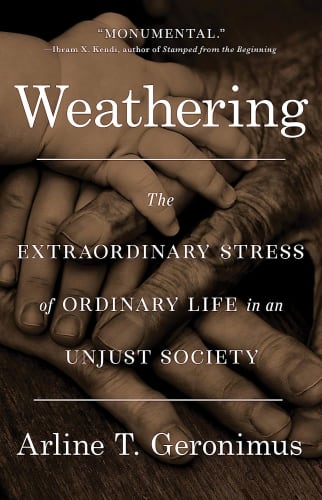
Weathering
The Extraordinary Stress of Ordinary Life in an Unjust Society
Fusing science and social justice, renowned public health researcher Dr. Arline T. Geronimus offers an urgent and necessary book exploring the ways in which systemic injustice erodes the health of marginalized people. America has woken up to what many of its citizens have known for centuries and to what public health statistics have evidenced for decades: systemic injustice takes a physical, too often deadly, toll on Black, brown, working class, and poor communities, and in fact on anyone who experiences persistent cultural oppression or economic exploitation. Marginalized Americans are disproportionately more likely to suffer from chronic diseases and to die at much younger ages than their middle- and upper-class white counterparts. Black mothers die during childbirth at a rate three times higher than white mothers. White kids in high-poverty Appalachian regions have a healthy life expectancy of 50 years old. In the face of such clear inequity, we must ask ourselves why this is, and what we can we do about it. Dr. Arline T. Geronimus coined the term "weathering" to describe the effects of systemic oppression--including racism and classism--on the body. In Weathering, based on more than 30 years of research, she argues that health and aging have more to do with how society treats us than how well we take care of ourselves. She explains what happens to human bodies, down to the cellular level, as they attempt to withstand and overcome the challenges and insults that society leverages at them, and details how this process ravages their health. And she proposes solutions. A new majority of people are ready to acknowledge and deplore systemic racism and classism. But, until now, there has been little discussion about the insidious effects of social injustice on the body. Weathering shifts the paradigm, shining a light on the topic and offering a roadmap for hope.
Weathering
The Extraordinary Stress of Ordinary Life in an Unjust Society
